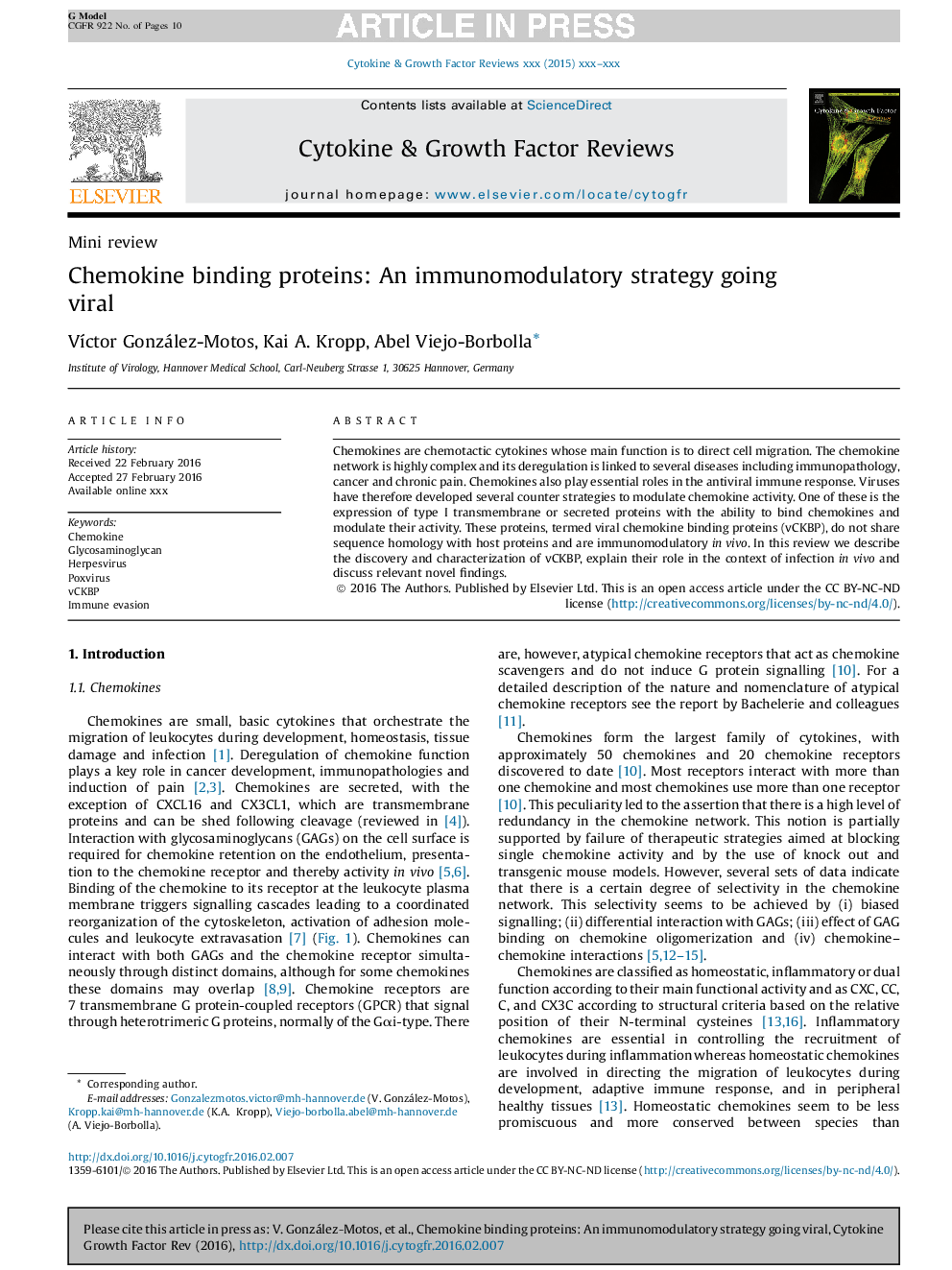| Article ID | Journal | Published Year | Pages | File Type |
|---|---|---|---|---|
| 8466428 | Cytokine & Growth Factor Reviews | 2016 | 10 Pages |
Abstract
Chemokines are chemotactic cytokines whose main function is to direct cell migration. The chemokine network is highly complex and its deregulation is linked to several diseases including immunopathology, cancer and chronic pain. Chemokines also play essential roles in the antiviral immune response. Viruses have therefore developed several counter strategies to modulate chemokine activity. One of these is the expression of type I transmembrane or secreted proteins with the ability to bind chemokines and modulate their activity. These proteins, termed viral chemokine binding proteins (vCKBP), do not share sequence homology with host proteins and are immunomodulatory in vivo. In this review we describe the discovery and characterization of vCKBP, explain their role in the context of infection in vivo and discuss relevant novel findings.
Related Topics
Life Sciences
Biochemistry, Genetics and Molecular Biology
Cell Biology
Authors
VÃctor González-Motos, Kai A. Kropp, Abel Viejo-Borbolla,
